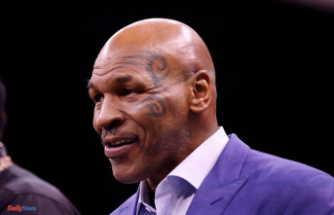Although the social origins of both were very different, Frederick Carlton Lewis, Carl Lewis, shared with Jesse Owens the state of birth (Alabama) and, above all, the athletic specialties: 100 and 200 meters, and length jump. It was not unusual, because, since he began to stand out, he was compared with myth, to the point of turning it little less than in the reincarnation of him. That always flattered and stimulated Lewis, but he also came to fatigue him by feeling that he was denied part of his own personality to make him assume, inherited, an extension of that of Owens.
It was inevitable that the great attraction of the Olympic Games of Los Angeles, in 1984, revolved around Carl's challenge of equal the four golds of Jesse (100 meters, 200, longitude and 4x100) in those of Berlin, in 1936. Lewis It was Olympically Rookie. In 1980, in the "Trials" for the selection for Moscow games, with 19 years old, he had ranked second in the length jump. In addition, the fourth place of it in the 100 meters assured the square on the relay team. The Western Boicot to the Games for the Soviet invasion of Afghanistan threw the young illusions of him.
In Los Angeles, Lewis was at the top of his fame and his triumphs. A year earlier he had won three golds in the first world championship, held in Helsinki. In California he awaited him with a kind of advancement of immortality. His relationship with Owens was reinforced in front of the press and the public when one of the best kept secrets by the Organizing Committee, the identity of the reliever that would enter the stadium with the torch, was revealed. It was Gina Hemphill, Granddaughter of Jesse. The woman handed the flame to Rafer Johnson, gold in the Rome60 decathlon, who lit the pebeletro, and the games began.
The end of the 100 meters was scheduled for August 4, a day later that Owens in 1936. Lewis agreed with her comfortably. Even in the second round, its mark of 10.04 became the best at low altitude in Olympic history.
In the final, Carl, as usual, it took, after the first support, to put into action. Up to 80 meters he was in the head, on the street 5, his compatriot Sam Graddy, who was happening to him the opposite and that, according to the words of him, came to think that victory awaited him 20 meters further. Then, on Calle 7, a cyclone appeared at 45 km. per hour. Lewis won (9.99) ahead of Graddy (10.19) with the biggest difference in the history of the Olympic Finals: two and a half meters.
In the personal and national apotheosis of 'King Carl', the 'Son of the Wind', nobody paid close attention to the third classified, a robust and sullen Canadian named Ben Johnson. Four years later, in Seoul'88, both would star a final for eternity whose details are known. Little more than a year before Carl's father had passed away. His son buried him with the gold medal of the 100 meters of Los Angeles.
Date Of Update: 03 August 2021, 21:33











